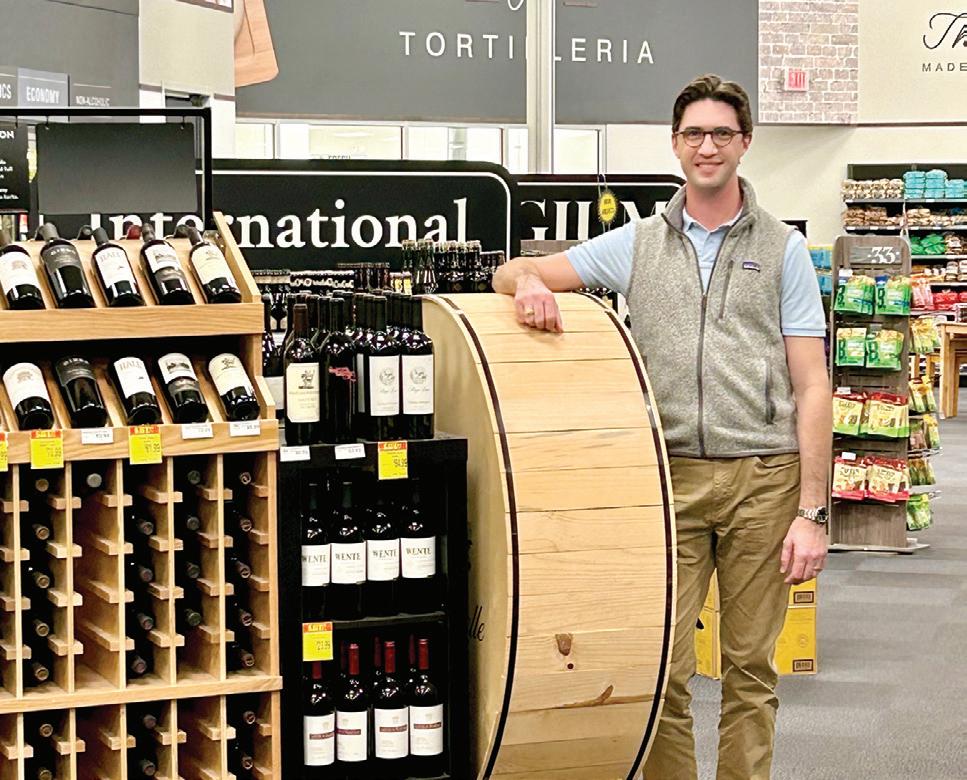


















With family focus, top wholesaler poised for growth across all areas President & CEO: ‘We work for the customer that we service every day – they’re also our boss’
Affiliated Foods Inc. in Amarillo, Texas, has been named The Shelby Report of the Southwest’s 2024 Wholesaler of the Year. Celebrating its 76th year in business, the co-op got its start when a group of six retailers came together to open their own warehouse and use their collective buying power to get better cost of goods and better compete in the marketplace.
Randy Arceneaux, president and CEO, said Affiliated’s beginnings are similar to that of other co-op warehouses, but added that, “76 years later, we’re still here. Not to mention, we’re doing $1.7 billion a year in volume.”
When the co-op was founded, its customer base was located within about 30 miles of the warehouse. Today, AFI is in eight states and serves more than 240 members at 740 different locations. Its trucks travel as far as 720 miles one way. Member retailers range in size from 5,000-65,000 square feet.

“That’s the beauty of the independent operator. They have stores based on the need within the community they serve,” Arceneaux said.
A small percentage of its members are convenience stores, such as Allsup’s and Yesway.
Arceneaux noted Affiliated’s produce micro-packs were initially developed for Allsup’s, but the popularity of the item grew so much that several of its larger member stores carry them in a grab-and-go section in their produce departments.
“It was intended for one group of members and it has become a key item for all.”
AFI has 13 members on its board of directors, representing the company’s trade area.
The board’s role is to help shape the growth and development of the warehouse, along with ensuring they are doing what’s needed to help the independent operator survive, Arceneaux said.
All board members are store owners.
“They have to do a great job of walking into a board meeting, taking off their hat as a retailer and putting on a board member for Affiliated hat and keep focused on what’s good for the whole cooperative,” he said.
“And if you always do what’s good for the whole of the cooperative, then you will always do what’s good for the whole of the membership, because they go hand in hand. I tell people this all the time. We are just a mirror image of a supermarket, but we don’t have a checkout stand. We’re just a big grocery store.
“If we’re successful at wholesale, then it allows our membership to be successful at retail because we’re giving them the right programs, the right items, the right cost of goods to be competitive. So in the boardroom, their fiduciary responsibility – like mine as the CEO – is to make sure that we have those programs in place. We manage the operations here to be as lean and nimble as possible and find as many efficiencies as we can so that we can keep costs of goods down, so that the members can compete in their respective markets.”
From page 15
Arceneaux said it was the vision of the board that allowed Affiliated to purchase its subsidiary production companies, which include a dairy, bakery, bottled water plant along with meat-cutting and produce facilities. The co-op also has partnered with a vertical growing operation to provide tomatoes and peppers for its members.
Having those facilities makes the day-to-day operations more complex, he said, but it allows the co-op to control its own destiny in those categories. “Kudos to our board over the years to not be closed minded but rather open minded and say, hey, our philosophy is this – if we can do it as good or better, at the same cost or lower, then we ought to do it ourselves.”
Subsidiaries are Plains Dairy, Tri-State Baking Company, Affiliated Fresh Cuts, Farmers Veg Pak and Panhandle Pure. The origin of its most recent subsidiary, Panhandle Pure bottled water, goes back to the COVID-19 pandemic, when bottled water suppliers were prioritizing their largest customers and often had little or no supply for anyone else.
Arceneaux said AFI members never ran out of milk or bread during the pandemic because Affiliated produces those products.
“We didn’t have any other customer base to service outside of our customers, so we controlled that, and they never ran out of those key element items during the pandemic. Hence, today is why we have a Panhandle Pure bottle facility to produce bottled water.
“We got cut so much product during the pandemic from our supplier that we said we’re not going to be controlled by this anymore. We’re going to go out and put in our own bottled water plant and control our own destiny moving forward. And that’s been tremendously successful for us.”
AFI continues to invest in its subsidiaries. It is expanding the bakery to produce specialty bread. The facility currently produces basics such as white, wheat, whole wheat and honey wheat, but Arceneaux said the category is growing into more specialty breads, as customers seek healthier options.
“With the expansion, we will have the opportunity to get into grain breads and put our customers into a category that they actually own now, not having to depend on a third-party bread company to provide those items.”
This allows retailer members to keep up with trends in the category. On the dairy side, AFI has just launched a fresh, lactose-free milk product in a half gallon and gallon. Again, this is consumer driven.
These actions allow AFI to have a better advantage in cost and supply for its members in the market.
The most current area Affiliated has decided to explore is a partnership with Brushwood Acre Farms, a vertical produce grower. While AFI does not own the growing operation, it has contracted to buy 100 percent of its produce.
Arceneaux said they see “a big runway in that,” with Brushwood Acre Farms looking to expand its operation and grow more items.
Affiliated Foods also is in the process of building a 110,000-square-foot new products facility as part of its Farmers Veg Pak subsidiary. Arceneaux said more space was needed in the main warehouse, so they decided to move produce across the street and tie it into the total produce operation.
That move will free up 83,000 square feet, which will be converted to additional frozen and dairy space, as AFI continues to grow those categories.
“Basically, they will all be connected … and a lot bigger footprint for produce,” he said, adding it will enhance shelf life, productivity and the right temperatures in the storage areas within the produce facility. “All of that will increase our efficiencies and

the quality, which also reduces shrink, which all comes into play for our membership and cost of goods.”
Another expansion is 110,000 square feet added to the dry facility of the main warehouse. It has 45-foot ceilings, and a vertical selection area is being installed that will house slower-moving items.
“The auto-selectors will select multiple stores in a vertical process, which will allow efficiencies and not traveling the whole million-square-foot warehouse, where those items are in different areas and different slots throughout the dry space,” Arceneaux said. “Those efficiencies come into cost savings at the end of the day.”
AFI also is working to upgrade its technology systems. Arceneaux said the co-op is wrapping up installation of a new procurement system in the warehouse and is in the process of installing a new yard management system that will track trailers at the facility.
This will increase efficiencies in moving loads and having them ready for delivery, he said.
The co-op also is in the beginning phases of implementing a truck tracking system. This mobile application will allow stores to track trucks while enroute for delivery. Arceneaux said this is a “big, big deal for our membership, and we’re excited about that.”
He added they also did a customer satisfaction survey through ROFDA in September, with members requesting better communication between the warehouse and themselves.
To that end, the tracking system will give retailers real-time information on the status of expected deliveries. Also, truck drivers will fill out a customer satisfaction form upon delivery.
Another way Affiliated will address member concerns is by launching a website tied into its customer portal – AFI News.
“That will be video driven where I or any one of the management team can get out there and post videos to inform customers of new items, new processes, giving them a State of Affiliated. I can get on there once a week, just let them know what’s going on in our world here at the warehouse and how that’s going to impact them as a customer.
“It will allow all of the key people in our company to communicate with that customer through video through our retailers’ portal, which I think is as good as it gets when you come to communicate with the membership,” he said.
Arceneaux said a lot of his background in the grocery business has been in procurement and marketing. He likes to negotiate and remains involved in procurement operations at AFI. He also sits in on every business review.
In addition, he is involved in putting together a game plan on how to make changes that will allow AFI to grow business.
“Because again, at the end of the day, price is important in our stores. Price is always going to be important, but also how we go to market with our members as far as the service aspect or the variety aspect also plays a part in that.”
Arceneaux said he will always be involved in those top-to-top meetings with vendors, challenging his staff to “be better every day on the negotiating side … making sure that we’re getting our fair share of not only product but getting our fair share of the marketing funds available from the CPG companies.”
As a co-op, Arceneaux says it is important to remember “we are owned by who we serve.” All of AFI’s profits go back to its members each year, which is an added benefit to them.
“The pressure is on me and my team every day to be as nimble as we can, find efficiencies as we can, not only to drive cost down every day for them to be competitive, but also to make sure that we give them good year-end dividends that they can utilize to reinvest in their stores, i.e. in pricing and/or equipment, or back into their own associates,” he said.
“That’s the beauty of the co-op environment. It’s not hard to remember who you work for every day when you get to this building. It’s pretty simple. We work for the customer that we service every day – they’re also our boss. So I’ve got over 240 bosses that I report to every day.”
Arceneaux said the culture at Affiliated – that he has worked hard over the last 15 years to instill in all associates – is that “at the end of the day, every decision we make, every action that we take here every day, impacts the end user, which is our member, which actually goes all the way down to the consumer.”

The day-to-day operations of Affiliated Foods Inc. in Amarillo, Texas, fall to COO Brian Piancino. His background in manufacturing – running a commercial bakery, a soft drink and bottled water plant for a large grocery chain – gives him the experience and insight to oversee AFI’s subsidiary businesses, as well.
“That’s definitely my background and more of my wheelhouse,” he said.
AFI has “great folks running those operations,” he said, “so it’s just more of an oversight and P&L watch through my office here.”
Piancino said he and CEO and President Randy Arceneaux try to “divide and conquer” in a lot of areas.
In the warehouse, Piancino and his team monitor overall performance, order selection and loading efficiency. Arceneaux oversees transportation, which is “near and dear to his heart,” Piancino said.

AFI has undertaken several projects recently. While most warehouses will pick one area of technology or improvement to focus on, he said the co-op took a more comprehensive approach.
“We looked at the fact that we need to expand our dry warehouse, and we need to build a new produce facility. And we needed to implement a new yard management system using technology. We needed a new purchasing system,” he said. “So we just decided we’re going to do all of it at once and just take that hit and move on.”
The yard management system will use RFID tags permanently mounted on all assets. Anytime that piece of equipment enters the AFI yard, it’s automatically updated in the system. It also updates locations of any trailers moved on the yard.
According to Piancino, the system will help reduce lag and wait times in getting trailers to the docks for loading and moving loaded trailers out. Also, when third-party carriers come in to haul a trailer, AFI’s dispatch can tell them its exact location.
AFI also is wrapping up installation of a new AB pick
From page 16
system, which will allow order selectors to pull orders for two different stores on the same pallet jack at the same time. This is for stores ordering less than a pallet of a given item.
“In essence, they can pick two stores worth of product in one pass through the warehouse. And if you’ve seen our warehouse, it’s large and a long pick path to get through,” Piancino said. “So basically, you double your efficiency on those small orders.”
In addition to the AB pick, AFI expanded the west section of its warehouse to include 45 feet of vertical space. The first three bays in that area will include slower-moving items (10 or fewer cases a week).
Vertical selection forklifts allow operators to stand on the platform, moving up and down the aisle, and select multiple store orders at once for a route. This condenses all of the slow-moving items down to a single pick path in those three aisles.
“They can pick an entire warehouse worth of the product in just three aisles in one day,” Piancino said.
Another piece of technology AFI has implemented recently is a scan-based loading program. Previously, each loader on the dock would get a route and the stores assigned to that trailer. A typical retail route is about three-and-a-half stops per trailer, Piancino said.

It is all about family – the family of AFI associates and members, who serve those shopping in the stores.
“What more is there than food, right? We all sit around a table at some point of the day with certain people – family, friends. Food is the center of what we do.”
He said Affiliated’s role is serving the members that own the co-op. “That’s our culture here. I think everyone here understands that very, very well … At the end of the day, that’s our goal – how do we make our members successful? Because without a successful member, we don’t have a successful warehouse for them. And this is their warehouse; this is not our warehouse.”
To achieve that goal, Arceneaux said the communication and collaboration within AFI has to be strong, adding that there are no silos in the building.
“Nobody operates in their own little world and secludes themselves from what takes place in this facility. Everyone works in unison with each other’s department because we all have the same goal at the end of the day, with the same cause at the end of the day. And everybody understands that and so collaboration within our management, collaboration within our supervisors, collaboration within our production facility with our production employees, all have to take place for this engine to work.”
Arceneaux said he has been in the grocery business for 48 years, and the passion he had for it when he started remains today. He said the best part of his job at AFI every day is watching the organization in action.
“When we finish our expansion, we’re at 1.3 million square feet. I’ve got 1,500 people
The new program prints a “license plate,” which is placed on each pallet. The pallets are then loaded in the correct position for delivery along that route.
“It keeps every pallet and position in line. It does not allow for out-of-line pallets without an override or supervision override. At the end, when that trailer is completely done, it prints out a digital manifest, nice clean print and clearly identifying every pallet and position in there. Then that is sent to the store, so they know exactly what to expect before that trailer even gets there.”
Piancino said AFI is excited about this program, which already has been paying off.
Another upgrade for the transportation department is a digital app that will allow each member to log in on any smartphone or smart device and see a truck on the route. It will give them an ETA and live update as that trailer continues to move.
Please see page 20
that come to this building every day, understanding what their purpose is and how all of that is orchestrated to come together. And at the end of the day, we’re taking care of our customers with the products and services that they need to compete in the marketplace. And it happens every day.”
He said the average consumer has no idea what it takes to get groceries on a shelf for them to buy. It all starts not only at the production facilities but also with the retailer understanding their customers and markets enough to carry the right goods and services.
They come to AFI to make sure they carry those goods and provide the services to help them be successful. Then, it takes the associates at the warehouse to understand their part in delivering those goods and services to help their members succeed.
“When you think about that full circle that takes place every single day here, it somewhat overwhelms you and at the same time, it just makes your heart feel good at the end of the day, that you’re contributing not only to feeding America in your region, but that you’re contributing to the lives of individuals and giving them a purpose every day,” Arceneaux said.
As CEO, sharing his vision and getting the buy-in from AFI associates to stay on mission is key.
“Everybody in this organization has heard me say this – I’m just a school bus driver. My job is to keep the school bus between the lines on the road. But everyone that comes to this facility every day, they are the engine, the parts, the doors, the tires, the seats of that school bus. They’re the ones that really make the school bus run.
“I just have to keep it focused and keep it between the lines moving forward. And what a joy that is every day to have that opportunity to continue to be a bus driver. I really enjoy it.”


From page 18
The word family is often used to describe the culture of Affiliated Foods. That feeling is part of the reason AFI is fully staffed while many companies across the nation are struggling to fill open positions.
“We’re probably in the best shape in our warehouse labor that we have been even since pre-pandemic levels,” Piancino said. “We’re fully staffed. We’ve got plenty of applications coming in, and we’ve got extremely low turnover.”
He attributes that to the fact that as a co-op, AFI “really feels like a family-owned business.”
“We try and treat it that way, and we try and treat the employees that way. We involve them in decisions. No one is really above anyone else.”
Piancino said he and Arceneaux are constantly walking the warehouse and lend a hand if needed. He said their doors – and those of all management – are open to employees.
He said AFI associates feel valued, which helps keep the turnover rate down. AFI also has raised wages, making it one of the highest paying companies in the area, Piancino said, along with being one of the largest employers.
“We’re trying to do whatever we can to make their lives easier or make them feel more comfortable here,” he said.
During COVID-19, AFI hired an RN and set up a clinic on site. After the pandemic ended, Piancino said officials saw the benefit of having a medical professional
on site and have contracted with a physicians’ group to staff the clinic with a physician assistant and an RN.
Employees can visit any time, for any reason and have zero co-pay.
AFI also has an Employee of the Month program, which leads to an award for Employee of the Year. The program is driven by supervisors on the warehouse floor, who nominate workers and then a committee of nine department heads make the selection.
The Employee of the Year is invited to attend the annual stockholders meeting, where they sit at the head table with Arceneaux and the chairman of the board.
“It’s just kind of tying in the employees here and all of our retailers. They all own us, and we all work with them and for them. It’s just a really nice way to close the circle and involve everybody.”
The COVID-19 pandemic changed how AFI dealt with vendors and brokers, Piancino said.
It went from being the customer trying to drive and bargain deals to “you’ll get what you get, and you’ll be happy about it.”
“For years, we just took it and we had no say in that process. We’re coming out of that slowly … and the vendors and the manufacturers have acknowledged that, and they honor their struggles as well,” he said.
“They had trouble with labor. They had trouble with securing raw ingredients and goods to produce. It was a trickle-down effect. And we understood that. But we’re
Please see page 22


As regional manager for DeJarnett Sales, David Rudder is the in-house brokerage agent at Affiliated Foods Inc. for all Own Brands that run through Topco.
Structed as an inbound broker, DeJarnett is essentially a nonprofit, with 15 percent income going to pay bills and 85 percent going back to AFI to be used as marketing funds, he said.
“I work for Affiliated, but we’re separate. DeJarnett’s job really is to be that liaison between Topco and the category managers, the procurement team with Affiliated Foods. We’re also the boots on the street for Affiliated Foods, trying to get all the private label items that they approve in the warehouse and trying to make sure they get out on the shelf.”
 David Rudder
David Rudder
Topco does all the negotiating, oversees and works specifically with each manufacturer. It is one layer in the process. All their category teams work with each of the manufacturers to develop the items, to create innovation, Rudder said. They also negotiate cost, price changes and help with supply issues.
“It’s all about communication and having a lifeline. We are the lifeline that AFI uses to communicate with all the great people of Topco.”
Using the category of rice as an example, he said Topco will contact all the different rice manufacturers and negotiate the best cost, best product and oversee the packaging that meets all of Affiliated’s specifications. Rudder communicates that
From page 20
now back to the point of getting everybody back at the table and we’re trying to drive business and we’re trying to get back to those relationships and those deals.”
For the past eight months, AFI has been hosting topto-top meetings, sometimes 15-20 a week.
“We bring the vendor or the broker in, our procurement folks are in there, Randy and I are in there, and we’re talking through recovery of where you are in manufacturing or supply. What’s the go-forward strategy? When are you going to be healthy and, if you’re there, let’s get some deals. Let’s get some promo, let’s commit to something in this room.”
As a result of those meetings, AFI has implemented its Hot-Buy program. It commits to the vendors and will pre-purchase a certain number of truckloads of product. The warehouse then sends out a hot sheet to its membership detailing the deal, which is offered on a first-come, first-served basis.
“It’s been going gangbusters,” Piancino said. “That’s been a great program and a good signal to the
choice of manufacturer for rice to Affiliated. He then develops that relationship with Topco and that manufacturer.
Rudder said they will represent that company for Affiliated and get those SKUs into the warehouse.
He also helps with promotional ideas for AFI, marketing, price changes and item selections for private label, working between the manufacturers and the procurement team. Rudder said he also communicates with the manufacturers and Topco to keep AFI up to date on any item changes, the “latest and greatest innovation, even helping them make changes on trucks or deliver late items.”
Among the promotional marketing strategies are the three-day sales that have been implemented recently, which Rudder said have been successful.
One of the programs used to spotlight private brands is the Vusion Rails electronic shelf label system. Set on an endcap in a member store, information and graphics are downloaded to LED screens. Different private brand products are featured each month. Currently, 170 stores are signed up for the program and have seen from 30-73 percent growth on those items compared to year-ago sales.
“Statistics continue to show private brands business has grown, especially when the economy’s tough, and we’ve seen tons of inflation in food,” said Affiliated Foods President and CEO Randy Arceneaux. “There’s nobody that’s not dealing with that today. So it gives more opportunity for private brands to grow.”
Please see page 24
membership that these folks are starting to come back with these deals, and it’s time to get excited again about this.”
He added that AFI has looked at the digital platform and the new ways consumers are shopping and how manufacturers want to go to market.
“That’s been a big transition for us in taking traditional print and coupons completely over to the digital platform. We’re doing a lot more advertising and targeted coupons through those digital apps,” he said. “It’s been a challenge for all of us to learn, but it’s been fun.”
Most grocery distribution warehouses are the same in that they sell many of the same items, Piancino said. What differentiates AFI is that it is a co-op but also a manufacturer.
It owns its own print shop, vegetable processing facility, potato shed, bakery, dairy, meat cutting plant and water bottling plant.
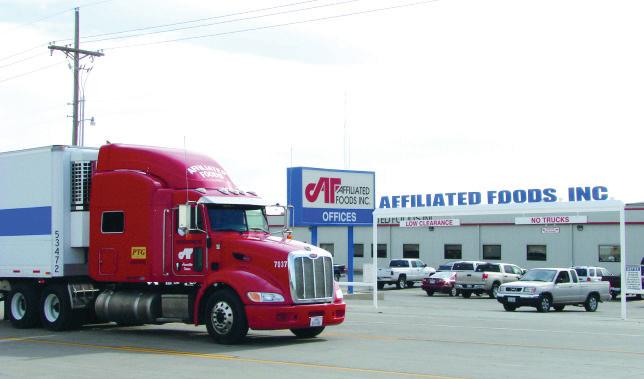

“We can bring so much value to the membership by being nimble and quick to react on trends or on opportunities.”
He noted the vision and foresight of the board of directors on bringing the subsidiary businesses on board.
“It’s good vision on our board of directors’ part to see opportunity and not be afraid to move forward and not be afraid to invest in those areas where we see good opportunity and good ROI.”
Looking at customer demand for iced tea, Piancino said they looked at creating their own brand after they saw a Southeast company moving into the Midwest,
“In six weeks we developed it, created packaging, got through labeling and ingredients and actually had product to sample at our food show when we launched our Panhandle Pure tea brand,” he said. “So just to have that speed and ability to do that was amazing, and it’s such a great value for the membership.
“We really believe in our membership, and we work for them every day. They own us and we never forget that. That is constantly drilled into every one of us here, from the top all the way down. If a member calls or a member has a concern or an opportunity, we’re going to do everything we can to help them out and to get them through that.”

Affiliated Foods Inc. is expanding its produce operations in a variety of ways. From new construction to partnering with a local vertical grower, the co-op is working to provide the best, freshest produce to its members at competitive prices.
AFI is building a 110,000-square-foot facility across the street as part of its Farmers Veg Pak subsidiary, which is AFI’s potato operation, banana-ripening process and the pre-pack overwrap operation.
The co-op has been developing its Basket & Bushel private label brand. Miguel Herrera, director of produce operations, said the co-op has expanded this brand to include new commodities and lines. It is resonating with Affiliated’s member retailers and their customers, he said.
The Farmers Veg Pak facility is assembling micropacks of several premium produce items under the Basket & Bushel brand.
“You’re trying to get that brand to resonate out there with a retailer so that, in fact, it’s their brand and they can stand behind the quality that’s being packed,” Herrera said. “And if you can continue to grow that, you get a lot more continuity out at the sales floor at retail.”

The new brand eventually will replace the Harvest Classic private label.
Micro-packs are created for potatoes, mushrooms, onions and grapes under the private label, giving members the ability to compete with some of the national retailers that have their own brands, he added.
“They can proudly say this is our brand … I think as we grow this, we’re going to just allow that many more items and lines and those different commodities, those specialty packs that will be in our brand.”
Herrera said the new produce facility AFI is opening will give them capacity for 30 percent more items and more volume, “which is exciting, because it's going to open a plethora of new items and lines for our retailers to have the opportunity to sell in their local communities.”
A 35-year veteran of the company, Herrera said he could not imagine when he joined that they would be moving forward like this.
“It’s been an amazing project just to get it off the floor
From page 22
and then continue to grow it and see how the retailers are benefiting from that, and the end consumer. It’s extremely exciting, and you can only imagine what the next three to five years will hold.”
The produce facility will feature a humidification system to help sustain the product before it is shipped to retailers. The increased capacity eventually will allow expanded lines to bag items such as oranges, lemons, limes and onions in two- and three-pound bags, Herrera said.
“We're going to expand our footprint into that arena as well. That gives us more of an opportunity to buy direct from the growers, bring it up here and just pass on extra savings when you're cutting out more of the middlemen.”
He said they want to be able to offer package sizes for AFI’s diverse membership, which ranges from a onestore operation to a hundred-plus stores. “We want to accommodate all of those retailers.”
Providing smaller pack sizes can help reduce shrink. Also, the ability to produce those items and package them daily if needed and keep the inventory turning and as fresh as possible.
Herrera said AFI’s partnership with vertical grower Brushwood Acre Farms has several benefits for co-op members, not the least of which is its location near the warehouse.
This helps reduce transportation costs, which lowers the overall cost of goods.
Brushwood Acre Farms will be growing jalapeño and Serrano peppers and Roma tomatoes for AFI. The goal is to harvest and ship them daily, ensuring the freshest product.
Herrera said the farm has to meet the criteria specified by AFI, which is its sole customer.
“It’s a good partnership. They know they’re going to have a set customer for everything that they grow.”
The sustainability from vertical growing also is important, he said.
“We’re looking at that, from the water consumption to the use of energy, the carbon emissions that you’ll be able to reduce without having those trucks driving across the country,” Herrera said.
He said the program has been a “tremendous success” for the membership.
“It’s going to be a program we continue to push. It gives us the opportunity to highlight our private brands at aggressive prices,” Arceneaux said.
Rudder noted the program will be showcased at AFI’s spring food show, where the company will try to sign up more members.
The participating retailers are happy with the results thus far. “Everybody has just praised the program,” he said.
It has worked well for some hard-to-sell private label items, such as baby products. That has been the category to see the highest growth, at 73 percent.
Rudder said AFI has committed to four weeks of just featuring Own Brands in AFI’s advertising.
“I think those will be successful for us,” he said, adding that each week will feature a designated theme.
According to Rudder, what helps differentiate Affiliated Foods from its competitors is its Own Brands.
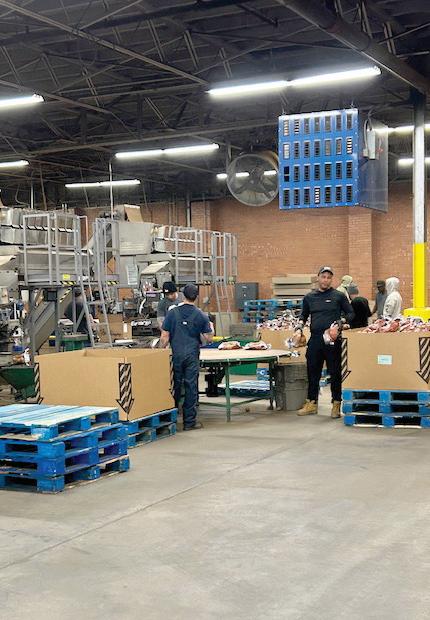
Another aspect is eliminating the need for waiting time at ports of entry for produce coming from outside of the country.
“Wherever you can minimize and eliminate a lot of those expenses, the sustainability of that will continue to grow and flourish.”
Plans call for Brushwood Acre Farms to provide more items for AFI in the future, including strawberries.
Herrera said having items from a local grower also helps with food safety and the ability to trace a product back to the source.
“There’s never a question or a doubt of what you’re shipping out. The quality of that product would just be second to none,” he said.
Please see page 26
product, many now are on level with national brands.
“Although there’s not a differentiation in formula, product quality, there is a differentiation in retail. And that’s where you can make the biggest impact,” he said.
The COVID-19 pandemic helped introduce shoppers to the new reality of Own Brands. Many tried private label for the first time when national brands were hard to find on store shelves. Rudder said consumers realized “this really is a great product or even better product. I’ll make this change for my family permanently.”
He went on to note that the younger generation of consumers is not brand loyal. Inflation also has been a factor in the increasing popularity of Own Brands. “I think that some of the national brands have inflated themselves so much that, in certain categories, they’ve pushed us some business.”

“We’re all selling the same Del Monte, the same Libby canned vegetables, but Food Club and Crave – all the variety of private label brands that we have that Topco manages for us – that’s what differentiates us. That’s where we’ve got to create our own excitement” for those Own Brands.
He said private label has changed over the years. Once considered a second-tier
He anticipates 2024 to be a “hard year,” with the upcoming election and people not being optimistic about the economy.
“That’s why we’re trying to create a lot more excitement around Own Brands and take advantage of some of those opportunities that we have to get people to come over to our side of the consumer mind.”
Rudder said private label is his passion, one he shares with Arceneaux. And the culture of AFI is that of one big, happy family.
“I hope that’s what our members see and feel when they call us with problems or opportunities, that they feel comfort, that ‘I want to help you’ mentality that is just bred in Affiliated’s offices and warehouse. It stems from our great leadership.”
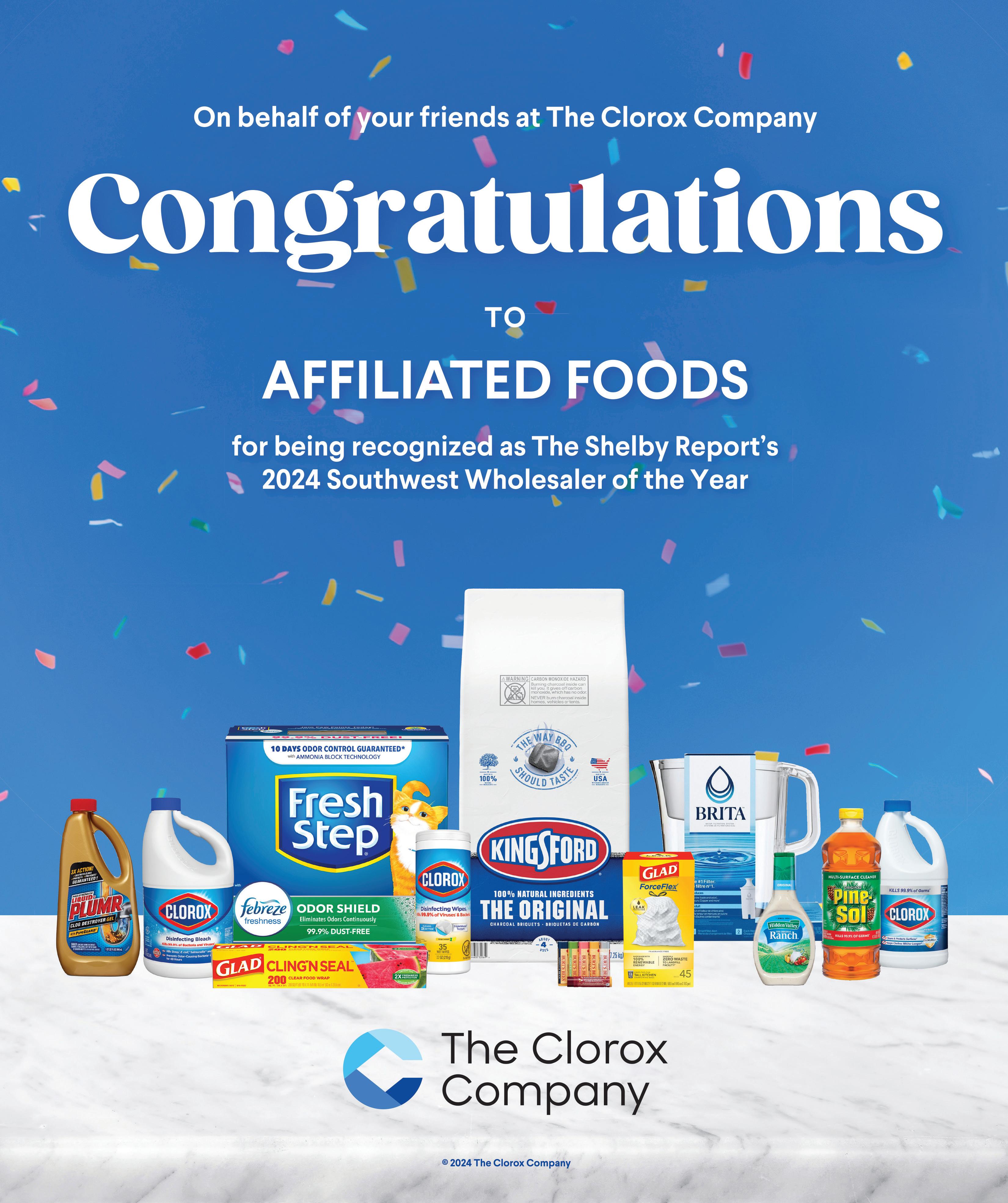
Affiliated Foods Inc.’s IT program has an exciting year ahead of it.
Kevin Fortenberry, director of IT operations, said the department is working on goals that are “store center, that I think will be very, very good.” He added that Steve Branson, director of IT application development, will be working on a new website for the co-op.
With a small IT staff, Fortenberry said they are not fancy, but they do it right.
Located in Amarillo, Texas, what Branson described as a somewhat remote area, it can be hard to find experienced IT people who are willing to move. Therefore, Branson said he has begun to grow the IT staff in a unique way.
“If I can’t hire experience, what am I going to do? Well, find someone that I feel like I can teach. So I buy the person instead of the experience. And over time, I win on that deal,” he said.
Once they are immersed in the culture of AFI, both Branson and Fortenberry say employees tend to stay.
“There’s a reason I’ve been here for 34 years. It’s a great atmosphere, family oriented; it’s not corporate, top driven,” Fortenberry said. “The most difficult thing is the thing we’re most blessed with, and that’s having hundreds of bosses. We can say every store that we service owns us, and we understand that.”
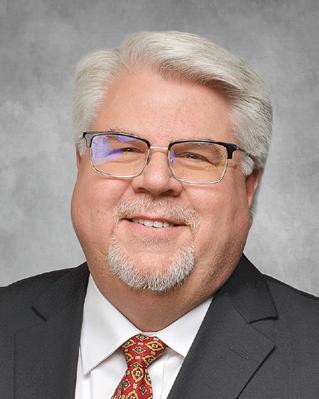

Branson started with AFI in 1996, “took about a 10-year break” and has been back for 12 years. He began his career at the co-op. When the company changed over to the IBM i AS/400, he was the one who took it out of the box.
“It’s been a good platform for us,” he said, adding that it has had a resurgence of sorts in the last few years and is now a focus at IBM. “They have put a lot of resources toward improving the product that makes guys like me look real smart that hung tough on that.”
For its warehouse management system, Fortenberry said AFI uses WCS and has adapted it over the years. Branson said they have made a lot of changes and are
From page 24
Herrera said AFI often works closely with its members to help them succeed and execute at retail. One example of this is a week-long produce training school for retail employees.
“You can bring somebody in here that has no produce experience. Day one, you’re explaining to them in a nutshell what the produce department entails, from receiving to selling. You break it down.
“You’re really enforcing the fundamentals of produce – the temperature, the hydration and the cleanliness –to where it’s very well understood by them. You have to have those fundamentals down every single day without hesitation.”
From there, they move on to merchandising and making the produce cases beautiful and appealing to consumers. Then they cover the pricing aspect of produce.
The classroom has a full prep area, where students learn to safely handle produce. Packaging also is covered, along with creating seasonal displays and the best way to display certain items.
“By day five, they have a very good understanding of what it entails, how to measure your shrink and your sales and have that confidence. If they leave there with that confidence, then they can go out there and duplicate what they did here. That will lead to successes, and it will lead to minimal shrink and good sales,” Herrera said.
For members who may not be able to send someone to AFI, Herrera said they will put someone in their store to teach employees.
The end goal is to assist members in ensuring their produce department employees have the skills and knowledge to offer the best to their customers.
looking to upgrade in the near future.
“The amount of modifications that we’ve made is huge. We’ve built a lot of things on top of it, using their database structures. The challenge will be to separate that out,” he said.
For the new website, Branson said they will be building it in-house. They have worked over the last year building a platform on the IBM, so they will have control over the store-facing and vendor-facing websites.
“We’re going to build new stuff, and that’s exciting to me. The foundation is built and the staff is getting in place … The wheel is just starting to move a little bit on the potential of what we can do.”
Fortenberry said one of the projects they are very proud of – and may be the first of its kind in the U.S. – is using LED Vusion Rails on member stores’ endcaps.
“They are LED rails that are made for an endcap that clip to the front of the racking. Basically, it’s taking an image and cutting it in four pieces, then those four pieces are displayed on that rail,” he said, adding they have been using it since July to promote private label products.
The DeJarnett team at Affiliated is driving the content.
Currently, 170 stores are participating in the program, which is updated each month with new content. The IT department pushes that to the system, which works with the Wi-Fi in the stores.
The program has met with a lot of excitement from participating retailers, which have seen substantial sales increases, Fortenberry said. “It’s a huge investment for the company, but it’s going to pay for itself with the uptick in sales.”
Building on lessons learned from creating AFI’s new vendor portal, both Fortenberry and Branson said they will keep the new website functional and easy to navigate. They realize retailers are busy and don’t have a lot of time trying to navigate a website.
“We have to be sensitive to that,” Branson said. “It’s just understanding your audience and being able to provide what they need.”
He added they also have done a lot of work on competitive pricing. “We’ve got a
Please see page 28


From page 26
lot of information that we present to our stores to help them make decisions.”
Fortenberry said AFI offers its retailers six house zones through which the co-op manages their pricing.
Branson added they have multiple pricing strategies available to retailers, taking into consideration those that are in a competitive market to those with no local competition.
If a price change is warranted through the metrics AFI has in place, the system calculates the new price and sends retailers tags and a download for their POS systems.
For stores using electronic shelf labels, AFI will send the file to be uploaded. For those who don’t use ESL, Fortenberry said AFI will print and send tags via “truck mail.”
“We communicate a week in advance to all of our stores all the new prices that are coming down,” he said. “And for the folks that are on our tag program … every weekend on Saturday, we’ll print and send out all the tags that will be active the next week or week down the road. We also do promotions of our TPR tags that come out weekly.”
He said there also are manual shelf tags for a retailer on a house zone but that needs to be more competitive on certain products.
“They can set their own pricing. They don’t have to stay on our zone,” Fortenberry said. “We will maintain their pricing for them. If they want a 20 percent margin on [an item] instead of 28, we’ll support that.”


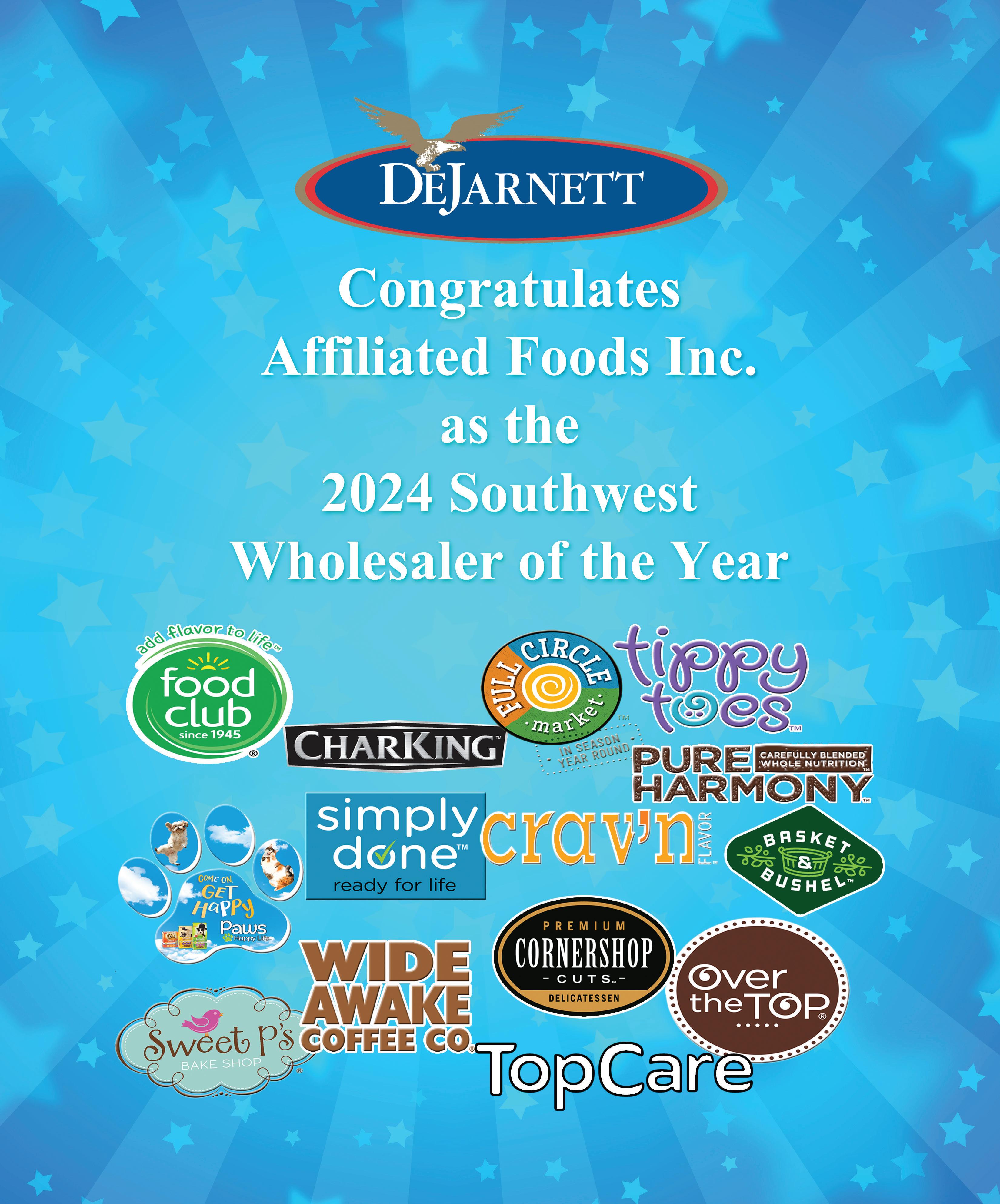
Affiliated Food Service, founded in 1978, is an extension of Affiliated Foods Inc. Megg Mathis, business and marketing director, and Trent Laubhan, food service sales manager, are veterans in the division.
AFS was launched when the co-op realized that it was stocking food service items for its retailers’ bakeries and delis that traditionally were being sold to restaurants, convenience stores, meat markets and other businesses that wouldn’t quality for co-op membership.
The division created a new revenue stream, and “it’s just grown and grown into what we did last year, which was about $112 million in revenue,” Laubhan said.
He said the food service division benefited from the fact the warehouse, transportation and other items were already in place.

“It gives us a decided advantage to be able to sell against other food service companies … that we can dip into retail parts of the industry and sell those items,” he said, adding that Affiliated Food Service has about three times the number of items to offer than its competition.
“A traditional food service warehouse will have approximately 10,000 items. We have approximately 38,000 items that our customers can choose from by being joined with the retail side,” Mathis added.
On a monthly basis, AFS serves about 1,200 customers in five states. Its coverage area includes northern Texas, the Texas Panhandle, eastern New Mexico, southeastern Colorado, southwestern Kansas and western Oklahoma.
Laubhan said AFI offers many advantages to its food service customers, including its subsidiary manufacturing facilities and its “massive transportation department.”
“That’s in excess of 700 trucks at any given time that are out on the road for our benefit,” he said.
The Affiliated name also is recognized across the region.
“We’re a pretty easy sell for a food service customer to come over, to the point of we traditionally are adding on new customers, anywhere from 25-50 new food service customers on a quarterly basis. And the selling platform that we have is very advantageous, very good for the customer and very good for the sales rep. It’s very good for our business model. It’s kind of a win-win for all three.”
He added that with the warehouse behind them, they are able to work on a little lower margin than their competitors yet still achieve the same goals.
Mathis said another advantage is they “do rural business very well,” as many of AFI’s retailers are in small towns.
“That allowed us to go out and capture the business in rural areas very successfully, because the truck was already going there. You might as well pick up all the business available in the town, not just the retail business but the food service industry as well,” Mathis said.
Both Mathis and Laubhan lauded AFI’s team concept.

“The all-for-one and one-for-all kind of philosophy, everybody is all about the greater good instead of what just truly benefits each individual department,” Laubhan said.
Mathis added that all departments work “hand in hand to make sure that each department is sustaining the best possible service for our customers, whether it be retail or food service.”
The Vendor Advisory Council at Affiliated Foods Inc. is an important communication tool for the co-op.
Established by President and CEO Randy Arceneaux about 14 years ago, it allows representatives of the warehouse’s vendor community to get together and discuss issues and exchange ideas to better serve all parties.
Arceneaux said he sees the overall business as a three-legged stool.
“We’ve got to have a customer, we’ve got to have the vendor and we’ve got to have the warehouse. If any one of those legs fall off the stool, then we can’t accomplish what we’ve got to accomplish every day to be competitive in the marketplace,” he said. “All three legs of that stool have to work together. If you’ve ever sat on a two-legged stool, you don’t sit on it very long.”
Arceneaux said he brought the idea of the council with him from another organization he was part of before joining AFI. He also has instituted a Retail Advisory Council, comprised of some of AFI’s member retailers.
While the two councils meet independently, they also have joint meetings, which Arceneaux said have been very productive. The warehouse is represented at all meetings.
The joint meetings help clear up any misconceptions and result in better communication for all involved.
“It’s a lot of give and take in those meetings. At the end of the day, everybody wins because we all come to the middle,” he said. “We all work out something that’s good for everybody … we’re better than when we started the meeting, and we’re better at driving business and the efficiency side for the warehouse and better cost of goods so that they can compete better in the marketplace. That’s the beauty of it.”
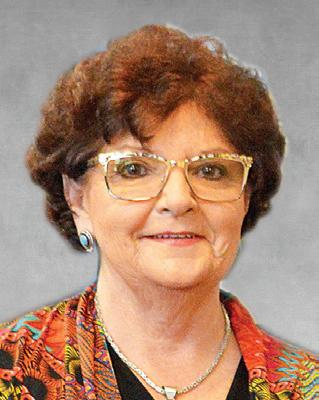
Rita Reid, VP, West Texas Division of the Reece Group Inc., is president of the AFI Vendor Advisory Council and one of its founding members. She had known Arceneaux before he joined AFI and became involved with the co-op when he reached out to her to establish a dollar program for the warehouse. That was about 15 years ago.
Reid said he asked her to help organize the council with a combination of brokers and direct manufacturers. They started with 15 members. Today, that number has grown to 20, and Reid continues to serve as council president. She said when her first term ended, everyone voted that she continue. “It’s been that way ever since. Two years turned into 14.”
Reid said the council’s purpose is to “ensure AFI and their members are receiving the best service, provide competitive market updates.” In addition, they work as a team with AFI’s staff to streamline efficiencies in marketing procedures and provide the highest level of promotional funding for members.
She said when members of the council come through the door, “the competition stays in the hall.” They work with AFI’s director of procurement to discuss ideas and issues to be addressed at meetings.
“The first thing I told everybody back when we started was, ‘At the end of the day, if it’s good for the
retailer, it’s good for the wholesaler.’ What’s good for the retailer and the wholesaler, it’s really good for everybody in this room. That’s how we have to think … It has to be a team effort all the way around.”
Reid said the joint meetings with the Retail Advisory Council are “priceless.”
“The very first meeting was so enlightening, because a lot of the retailers didn’t know what vendors go through to get them what they want – funding and items … It gave them a better understanding of how the vendors have to work and what we do to work for them.”
Having Arceneaux at those meetings is crucial, Reid added, because he can make decisions “right then and there.”
Tom Barnett, SVP at Acosta Sales & Marketing, also is one of the original members of the Vendor Advisory Council. He attributes much of the council’s success to Arceneaux’s “collaborative, let’s-win-together attitude.”

“We’re all competitors … but when we get in that room – when Randy gives us a task or we talk about opportunities – we’re really trying to do what’s right for all of the vendors and all of the retailers,” Barnett said.
He said he believes one of the reasons AFI remains strong is because of communication between the warehouse, vendors and retailers.
“I think the uniqueness of the VAC is just the collaborative nature of the way that we try to behave together. Randy’s great. I think he’s the best sales guy I’ve ever known. His ability to collaborate with the manufacturer, with the retailer … he’s extremely fair about everything he does.”
Barnett said the idea for the joint meetings with the retail advisory council was “a stroke of brilliance” and has been a learning opportunity for all parties.
“I think when you live and breathe buying and selling food, your family’s livelihood, your livelihood, your friends’ livelihoods are all dependent on you working together. It kind of changes the game a little bit,” he said.
Denise Johnson, business manager for San Antonio-based broker ArchPoint Sales, is another founding member of the council. She has been calling on AFI for more than 25 years.
She describes the VAC as the voice for the broker and vendor community. The council helped AFI put together its new vendor portal, which Johnson said has been well received.

Johnson noted the openness of Arceneaux and COO Brian Piancino at the meetings. They share not only what’s happening at AFI but also industry news that may be of interest.
She said ArchPoint has grown significantly over the years by being a partner with AFI.
“Their success is our success,” Johnson said. “Affiliated is a wholesaler that is committed to making sure that their retailers are getting the best prices every day. They definitely are a true partner, not only for brokers and vendors, but also for their retailers.”
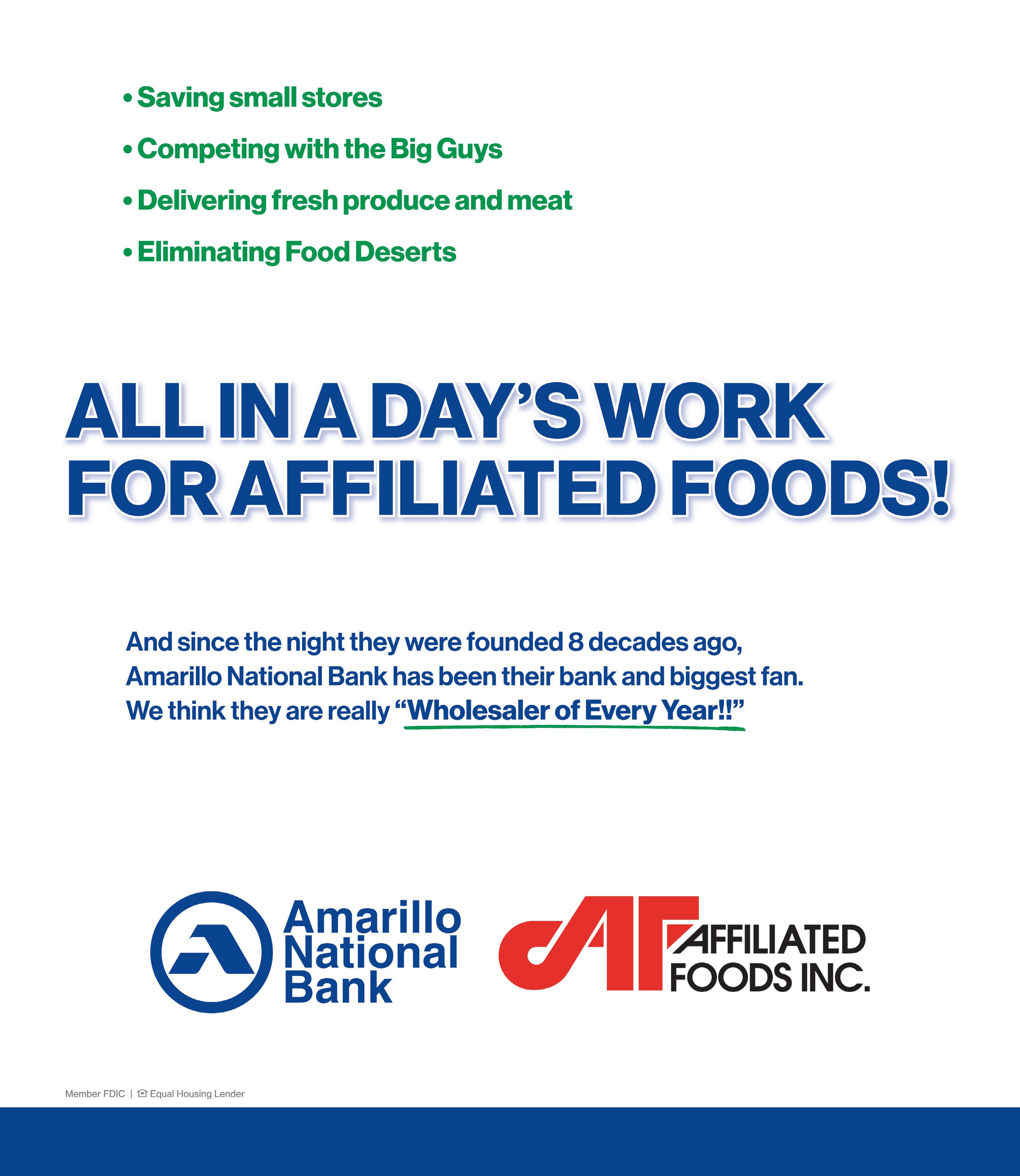
Panhandle Pure, AFI’s bottled water subsidiary, got its start in June 2021 as a result of the COVID-19 pandemic.
When the co-op was unable to secure supplies of bottled water from its vendor, AFI’s board of directors and President and CEO Randy Arceneaux decided to take matters into their own hands.
Operations Manager Tim Zinn was working at AFI’s dairy when the call came to build the plant. Director of Operations Quentin Bonner was hired as they were building it. He hired Zinn to work at the new facility.
Bonner said the startup came about quickly, in about eight months, but “was one of the best startups that I’ve been a part of.”
The plant began production in June 2021 and immediately had a demand, although there was no warehouse space.

“We were struggling to keep up,” Bonner said. “We couldn’t make enough water. We were running seven days a week, just around the clock. It was tough.”
According to Zinn, the plant was built to provide 65 truckloads a week but was producing 80-100 truckloads each week.
Affiliated Foods gave the new facility a 10,000-pallet warehouse. Bonner said that was huge for the business, because it allowed for storing product during slower months to get a head start on the busy season.

Panhandle Pure serves 800 stores and has the capacity to produce between 225-230 million bottles of water per year. In 2023, the annual production was 169 million bottles.

Each bottle is a half liter.
“We didn’t have any outs, meaning every store that ordered water, they got what they ordered,” Bonner said. “We didn’t put anybody on allocation. So whatever you wanted, you got. That was our first year ever hitting that goal.”

He said the goal is the same for 2024. Customers are “the little stores on the side of the block in the rural areas. It’s very important if you don’t have a store for 30-40 miles that you have bottled water. A lot of people depend on bottled water. That’s why it kind of hits home a little bit more, just gives us a little bit more gratification … We’re doing a service.”

While AFI subsidiary Plains Dairy is celebrating its 90th anniversary, it has only been part of the Affiliated family since 1996.
Operations Manager Colby Butcher says AFI makes up 85 percent of the dairy’s business today.
Having its own dairy allows AFI to get the freshest product possible to its retailers. Fresh milk is shipped to the warehouse five days a week.

“Our whole job here is to make the best quality product as fast as we can so that we can keep it as cheap as we can to our members,” Butcher said. “We’re not about making money at the dairy, that’s not our thing.
“We’re here to make the milk as inexpensive as we possibly can to member stores, but it needs to be the best quality.”
As a co-op, he said the members own the dairy and have a voice in such an important business.
Butcher cited an example of going from 12-pack half gallons on items such a buttermilk and skim milk to a six pack. The retailers were having a problem selling the larger packages and did not want to waste product.
The dairy also produces Tampico fruit drinks, private label tea and water in 2.5-gallon and 1-gallon sizes.

Officials are open to making changes that benefit and support the co-op as a whole. Butcher said they are fortunate to have board members, both single store and large store owners, who put the needs of the members as a whole first. That mentality is provided across the board to all AFI subsidiaries.
“It is very refreshing to have owners that are that way
The plant’s location is less than a mile from AFI’s Plains Dairy facility and about eight miles from the Affiliated Foods warehouse. Bonner said 95 percent of the water produced goes to the warehouse.
The water is sourced from the city of Amarillo. The plant removes the chlorine from the water, which then goes through a reverse osmosis process and sanitizing before it is bottled.
The water and the bottles themselves are sampled several times each day to ensure quality and consistency.

because it could be different. They know what being a representative of the co-op is,” he said.
“All these different people with different agendas living in different markets, needing different things, and trying to satisfy all their needs is impossible. But to satisfy the general need, we can do that, and they’re very understanding about it. Randy [Arceneaux, AFI president and CEO] helps with that a lot, too.”
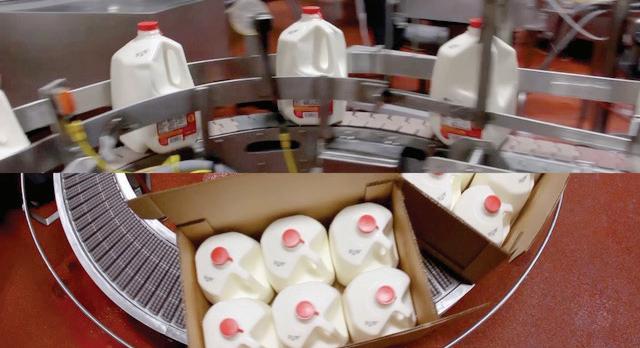

Tri-State Baking Co. has been in business since 1955 but was bought by Affiliated Foods in 1998.
The bakery produces six varieties of bread, according to Kevin Barker, director of operations, and about nine million loaves each year.
The bakery also has a cross-dock program with Mrs. Freshley’s snack pies, along with buns, bagels and other offerings. AFI stores can order from Tri-State in smaller quantities.
“Across the street in the warehouse, it’s all in full case size,” Barker said. “Here, if they just want one box of doughnuts, they get one box of doughnuts. We do single picks here, which is an advantage for us, especially for stores like Allsup’s [convenience stores].”

Barker said the bakery picks and ships five days a week and is on the same shipping schedule as the AFI warehouse.
When AFI retailers place an order, the bakery produces to that order. He said it carries about one day of product on hand at all times, in case of any downturn at the facility.
The bakery ships product to the AFI warehouse, which cross-docks it onto product loads which are then shipped to retail stores.
Barker came to AFI after 24 years with a large national grocer, with most of his time spent in manufacturing plants. He said working for Affiliated has involved a little bit of a learning curve, adjusting to the fact that it is a co-op and the members own the business.
“This is a very healthy company, which is good to see,” he said, adding that he is appreciative of the support from the board of directors. “They want the bread plant to succeed.”
Tri-State Baking is undergoing a large capital project involving expansion of the building and new equipment for the entire mixing area. When finished, Barker said every major piece of equipment – proof box, oven, slicers, baggers, mixers – will be less than 10 years old.
“That’s almost unheard of unless you do a ground-up, new bakery … It’s exciting that the members are going to have pretty much a new bakery … which is going to be great for them.”
Barker acknowledged that AFI’s subsidiaries allow it to “offer something unique in the co-op world.”
“The bread plant offers to the members more than just the cost, because we sell at cost to the members. We’re not making any money on our bread. But it offers them a reliable source of a consistent product that they know they own. We’re always going to be here.”
He said it has been a mindset change for him, coming from a corporate chain.
“We don’t view them as customers, we view them as our owners. When they call and need customer service, or they need a sales team member to go down to help them reset a store or something, it’s ‘Yes, sir.’ ‘Yes, ma’am.’ And we’re right on it. It’s that value.”
Barker said he believes that is true of all AFI subsidiaries.
“When something happens in the supply chain, they know they’re going to have a reliable source. It’s


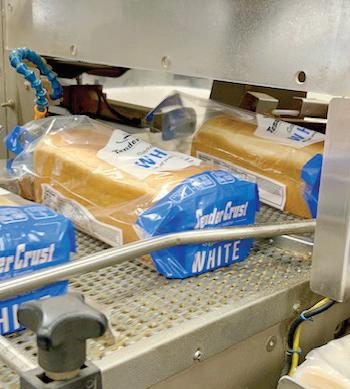
not going to be picking and choosing, or they have to wait on the back burner because someone larger wants the goods. We’ll always supply them.”
Barker said AFI is a very forward-thinking company.
“We don’t rest on our laurels … We’re still looking at what else we can do. How else can we add more value to the members, which I think is a very forward-thinking thing. Because when you’re a profitable company … it’s easy just to say, ‘Hey, this is good. Let’s keep doing this.’ They continually reinvest in it, and the board is continually supporting that, which is awesome.”
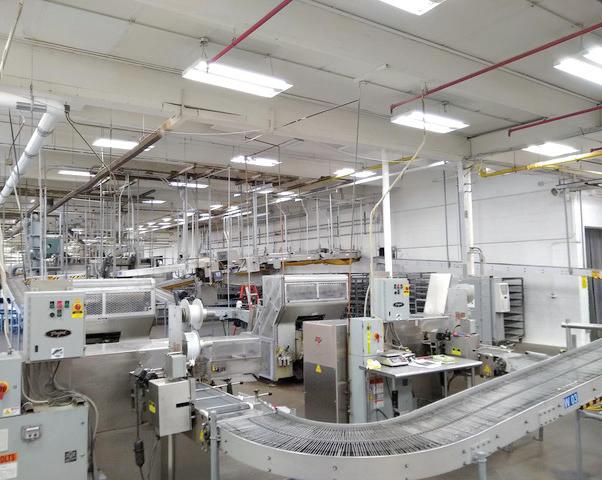

One of Affiliated Foods Inc.’s subsidiary businesses, Affiliated Fresh Cuts is a meat processing facility with a variety of items available to the co-op’s retailers.
“We take out the legwork for the retailer,” said Russell Fontenot, director of operations. “We process the product so they don’t have to at store level.
“We cut it up, we bag it, we box it, we ship it to Affiliated and Affiliated ships to our member stores. We do that on beef, pork, poultry and value-added items.”

While Affiliated buys its own beef, pork and poultry and ships those products to its customers, Fontenot said retailers have to process those orders at their stores. Affiliated Fresh Cuts provides that service for AFI’s smaller customers that don’t have butchers in their meat departments.
AFI purchased the facility in 2018.
“The board wanted to expand this business to where we could offer it to our members with smaller stores that don’t have the labor. We produce case-ready beef. We cut any type of beef item that you can think of. And same thing on the pork side. We cut it, tray it, gas flush it and put it in the box.”
Among the processed items AFC produces are ground beef, beef tripe, pigs feet and menudo mix. It also offers value-added items such as seasoned poultry and case-ready beef and pork products.

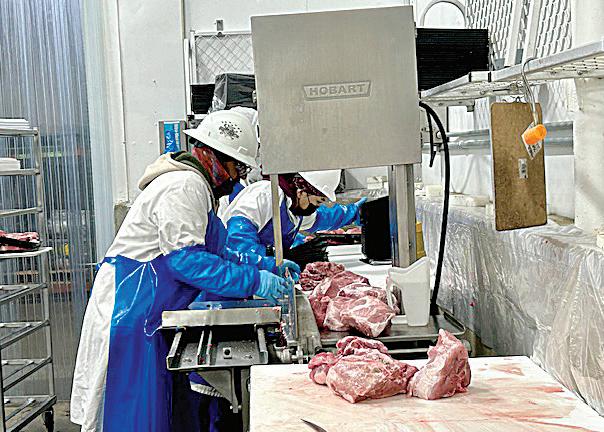
Among the seasonings offered on poultry products are barbecue, lemon pepper, sweet chili, chipotle and achiote, according to Production Manager Chance Gilmore. The seasonings are offered on drumsticks, thighs, leg quarters and breasts, along with vacuumpacked chicken fajita meat.
Providing these items to AFI’s retailers saves them on labor, as they do not have to process it on site.
“It’s value added. This gives them more time to do other things, such as wait on customers,” Fontenot said. “The value items that we do, like the poultry, other wholesalers don’t do that. They buy it from a distributor.”
That savings is a benefit to AFI members. Gilmore added that AFC can package items in different configurations, depending on the customer. This helps with shrink at the store level.

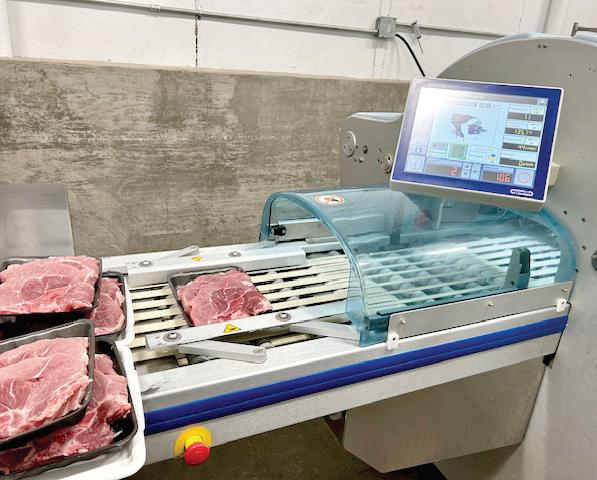
Brushwood Acre Farms is a privately owned vertical growing operation working in partnership with Affiliated Foods Inc. to supply a variety of produce.
AFI is the farm’s sole customer and is located near the co-op in Amarillo, Texas.
Brushwood Acre Farms currently is growing hydroponic jalapeño peppers, Serrano peppers and Roma tomatoes, which it will be delivering to AFI soon.
Randy Arceneaux, AFI president and CEO, said the co-op is excited about the partnership.
“How wonderful that you can get fresh produce one mile down the road and not have to truck it in from California, Mexico, Arizona, and cut all the freight costs out of it, which gives our customers even more advantage on price in the market.”
CEO Steve Henderson said they are working on several varieties of items, including strawberries, for the future.
When it reaches full production, Brushwood Acre Farms will be growing more than 28 million tomatoes a year.
Henderson said its footprint is expanding to encompass more than 140,000 square feet of growing space.
“We’ll have plenty of room because we have a lot of different varieties of tomatoes to grow,” he said.
Brushwood Acre Farms uses a hydroponic growing system that uses water and nutrients but no soil. It uses a water recirculation system that it built, which allows the operation to use less than 100 gallons per week.
“It’s close to 95 percent less water than traditional farms,” Henderson said. The facility controls all environmental factors, which leads to a superior product, Henderson said.

“We don’t add any additives at all … They are naturally grown, just as if they were in the soil.”
Another benefit of hydroponics is the increased lifespan of the product due to the controlled environment and the quicker delivery time.




Roger Lowe Jr. is CEO and chairman of Littlefield, Texas-based Pay & Save Inc., which does business as Lowe’s Market and Food King. He also is chairman of AFI’s board of directors.
Pay & Save Inc. has been a member of Affiliated Foods for more than 50 years. The company operates 153 stores in Texas, New Mexico, Colorado, Arizona and Kansas.
For his company, being a member of AFI is like owning its own distribution center.
“They work with us hand in hand on everything. We have such a special relationship with Affiliated that our programs are their programs, and their programs are our programs.”
Lowe said Affiliated Foods stands out from its competitors in many ways, No. 1 being in cost of goods. He said at Pay & Save Inc., he runs comparisons against other warehouses.

“There’s no comparison on the cost of goods when you boil it down apples to apples. There’s not another co-op or voluntary warehouse out there that has the cost of goods that we get from our warehouse,” he said.
He said AFI also does all the buying for his stores. The co-op negotiates all of the programs for the products his stores carry. This allows his company to focus more on selling and less on buying.
Lowe said AFI’s subsidiary businesses also are tremendous benefits of membership.
“The services and what they offer us is second to none in the industry,” he said.
“You really have to look at all the extra departments that Affiliated offers, be it the dairy, the water [bottling] plant, the bakery, the meats, all the different facilities that Affiliated is touching and how much simpler that makes your life as a retailer.

He said AFI’s ability to stay on top of trends and being open to trying new things is key to its success.
Having each member feel they have a voice at AFI also is important.
“Being a co-op, I get one vote with 153 stores where the person with one store gets one vote. There’s no disparity between voting,” he said. “I get the same deals that the one store operator gets; the one store operator gets the same deals that I get. There’s no negotiating outside of the warehouse that takes place. It’s all done within the realm of the warehouse.”

“One truck backs up and has all that on it versus getting it from 10 different vendors. You start putting that savings in, which is not even counted in the cost of goods, then you’ve benefitted, and it becomes that much greater.”
The co-op continues to grow and is building a new produce facility that Lowe said will allow that program to go from good to great. He also cited AFI’s partnership with vertical grower Brushwood Acre Farms as an example of the innovative thinking of warehouse leadership.
Located about a block from AFI, the farm soon will provide members with jalapeño and Serrano peppers, along with Roma tomatoes. AFI is Brushwood Acre Farm’s sole customer.
“The quality will be impeccable,” he said. “When that program gets off the ground, that’s going to be something that nobody else has in the industry that is that close, that functional and tailored to what we need, not to what they want to grow.”
In addition to the quality and savings in cost of goods, Lowe said taking the transportation costs of fuel and trucking will make AFI’s member retailers even more competitive in the marketplace.
With its diverse membership of independent retailers of all store sizes and operations, Lowe said the board uses that diversity to keep AFI on its toes.
“They have to be on the cutting edge of almost everything they do and be progressive. We’re very open to expanding and growing our business, because it’s not a hard sell for Affiliated to go out and sell Affiliated Foods. Because if you start talking to a retailer, there’s not a retailer out there that doesn’t just sing its praises and just start rattling off what the benefits are for them.”

Lowe said members also benefit from the exchange of ideas. A one-store independent may have ideas and programs that larger operators adopt and vice versa.
He said one of the challenges of a co-op warehouse is dealing with so many different people and having them all working together.
“Our warehouse has done an extremely good job of getting everybody to kind of go in one direction. Because if everybody’s going in one direction, that [puts it in] a much better negotiating place out there in the industry than if you’ve got 750 stores doing 750 different things.”
Lowe said AFI also has done of good job of keeping things simple. “It’s a challenge, but I think we have such amazing leadership at Affiliated Foods, across all departments, and especially at the top with Randy Arceneaux. He really sets the whole tone for our warehouse and what we do up there.”
Lowe added that Arceneaux is a great leader and manager and, “in my opinion, he is the best CEO of any grocery wholesaler in the country. His leadership is what sets the tone, but he empowers his department heads to run their departments and be the best managers that they need to be. It really goes from the top down, and that’s how we try to run our company, as well.”
The family atmosphere at AFI is a key part of its culture for associates and members. Lowe said even though it’s a big company, it retains its identity “as not being too corporate.”
“They’re great people and we all get along. It’s just a really fun atmosphere that they have up there.”
Lowe said he has talked to retailers across the country who do business with other warehouses.
“I have not seen anybody yet have a relationship like what we have in our warehouse.”




Affiliated Foods Inc. in Amarillo, Texas, treats its members like family. Richard Driskell, director of retail at FireLake Foods in Shawnee, Oklahoma, said that – and the co-op’s leadership – are the biggest benefits of membership, among many.
As a board member, Driskell said he sees Affiliated President and CEO Randy Arceneaux “working day in and day out for his member stores and for that warehouse. He’s very hands on when it comes to pretty much anything within that warehouse…”
Driskell said Arceneaux’s visionary leadership and passion trickles down to his staff. “You can see that with any contact we have with anybody at Affiliated.”
All purchases through Affiliated count toward the members’ rebate, which Driskell said is generally paid 100 percent in cash at the end of the year, based on how well the warehouse performed.
All merchandising allowances are 100 percent off a member’s invoice, “so you don’t have money floating around that you’ve got to wait on, and you don’t have to have a detailed accounting system to keep track of that,” he said.

Affiliated’s subsidiary businesses are “huge benefits,” Driskell said. He noted Affiliated Fresh Cuts, which offers a selection of pre-cut meat to smaller stores that may not have their own butchers.
The bottled water plant, Panhandle Pure, was founded during COVID, when supplies of bottled water were scarce. This is an example of the co-op’s forwardthinking leadership, Driskell said.
Other subsidiaries, such as the bakery and dairy, also benefit members and allow them to better compete in their marketplaces. He also noted the co-op’s partnership with vertical growing operation Brushwood Acre Farms, where Affiliated is its sole customer.
AFI’s customer service is top notch, and Driskell said the staff will work with its retail members on whatever their needs are.
In recent years, FireLake Foods built some of the world’s largest displays to attract shoppers, and Affiliated was instrumental in garnering vendor participation, Driskell said.
“At one time, we owned the largest banana display. For Valentine’s, we had one of the largest rose displays. And we had one of the largest Malt-O-Meal displays

James Clasen, president of Gene’s Heartland Foods based in Wamego, Kansas, said Affiliated Food’s culture was what drew him to become a member of the co-op warehouse about seven years ago.
Clasen operates six stores throughout Kansas. He said Affiliated Foods is “more like a family than buying from a big corporation.”
Clasen said his stores range in size from 11,000-30,000 square feet, and Affiliated Foods has proven a good fit for his company. He added Affiliated has more synergy with


that had been built … We wanted to do something and make a big splash at one of our stores. Randy and his staff helped make all that happen by getting the vendors involved for those items we were wanting to try to build the world’s largest.”
More recently, FireLake Foods has been participating in Affiliated’s two- and three-day sales each month.
“That was forward thinking,” he said. “You’ll see other stores do it, but Randy initiated it through the warehouse. And his staff are getting deals for us to be able to run these two- or three-day sales that help with bringing in business because they’re really great items and good pricing that bring people into your store.”
Driskell said another benefit of membership, in addition to the deals through the warehouse, is the longevity and leadership the co-op offers. Affiliated has been in business for 76 years now, and Arceneaux and his team have decades of experience in the industry.
“Randy Arceneaux has been in this business for many, many years, and he has tons of contacts. He’s very passionate about his warehouse, and that trickles down to his staff,” Driskell said.
He noted that Arceneaux and his team are very involved in industry associations such as NGA and ROFDA, “doing their best to keep us competitive with those big chains and Walmart and Sam’s, Costco, so that we can get on a level playing field with them. So that’s probably another big benefit is having them involved politically with those things.”
Affiliated’s family atmosphere and “great leadership” set it apart from its competitors.
“I can’t say it enough, they’re very passionate about the warehouse and their member stores and want all of them to be successful. If they can do anything to make that happen, they will do it the best they can on their end.”

smaller independents. “It works well for us.”
Gene’s Heartland Foods has been in business since 1974 and has been with other warehouses. Clasen said with Affiliated, “if you have an issue, you can call and talk to Randy (Arcenaux, president and CEO). And you don’t have to go through 30 people to get to him.
“Things get taken care of, and they don’t take anything lightly. If you have an issue, it’s an issue to them. They take care of it. That’s what makes them family.”
down the big walk-in freezer.
“We had absolutely no freezer at all. We had to replace them.” Affiliated Foods sent a refrigerated trailer so they could store their frozen items.

“It’s not over and above, it’s just what they do,” Clasen said. “They’re just a great company … and they really work for the retailer. They try to provide us with the tools we need to compete.
Clasen cited an instance where he lost his freezers for two weeks in one location, which included shutting
He also noted the importance of Affiliated’s subsidiary businesses, such as the bakery, dairy and bottled water plant.
“They’ve done a good job of looking forward.”

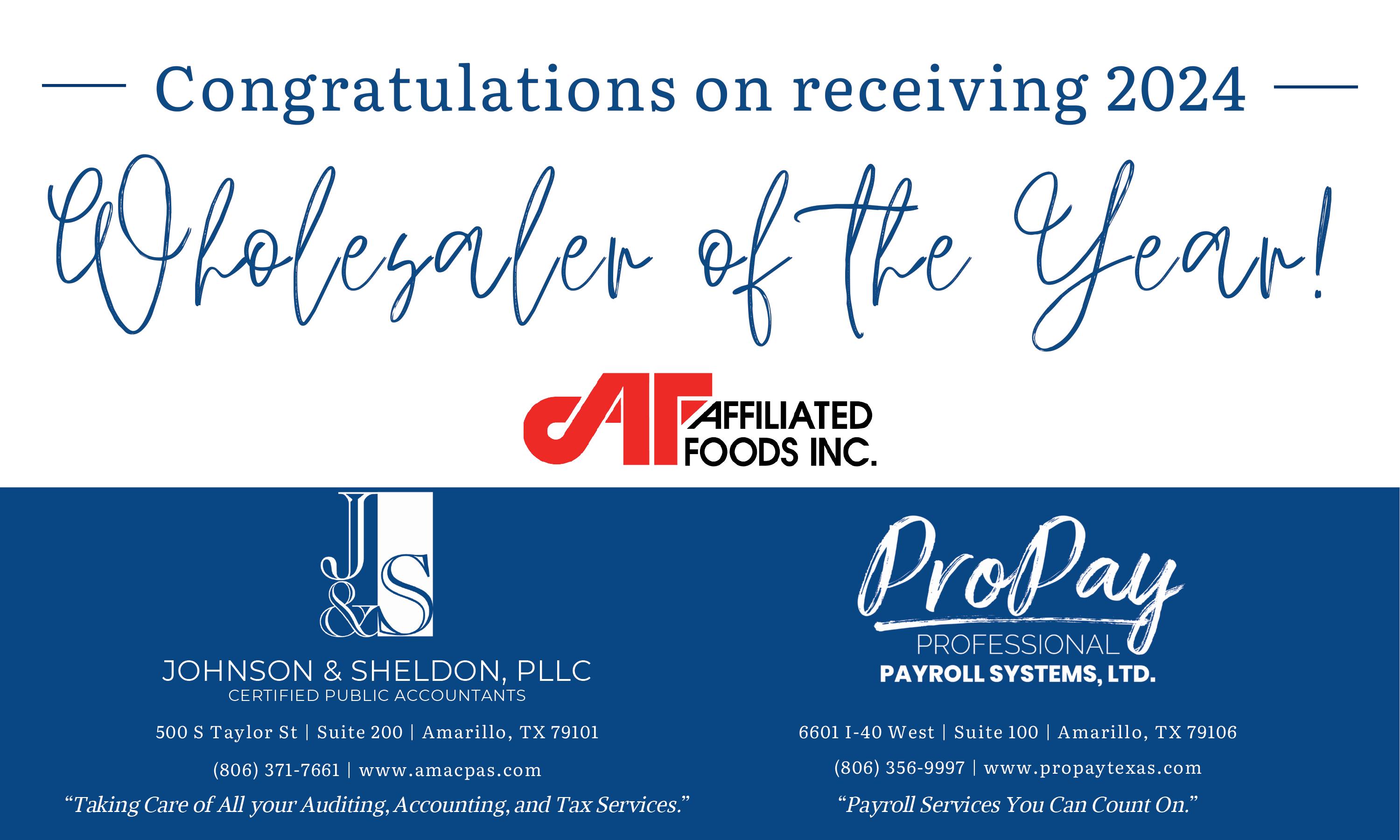
A 57-year veteran of the grocery industry, Randy Sullivan, owner of Durant Foods Inc. in Durant, Oklahoma, says becoming a member of Affiliated Foods in Amarillo is one of the best decisions he’s ever made.
“Affiliated Foods Amarillo is the best wholesaler I’ve been with in my 57 years around the grocery business. They’re just the best. They do everything well,” Sullivan said.
Since his father bought the store, called Green Spray, in 1967 and he began working there as a high school sophomore, Sullivan said they have had six different wholesalers. Four had gone out of business, necessitating a change.

Sullivan, who has been a member of Affiliated for 15 years, said he joined the co-op just prior to Affiliated President and CEO Randy Arceneaux taking the helm. He had been considering a wholesaler closer to his location but decided to visit the Amarillo warehouse before making a final decision.
He said he liked Affiliated’s produce program and that it had its own bakery and dairy. He also wanted to differentiate himself from a competitor in town, who was a member of the other wholesaler.
Sullivan said he also liked the family feel of AFI and that has only grown over the years.
“It’s like we’re one big family, and everybody gets treated equally. It doesn’t matter if you have one store, like me, or you have 10 stores or 150 stores … everybody pulls together to get the best deals we can get. And everybody’s treated equally. I have great admiration and respect for that.”
Sullivan has been a member of the Affiliated Foods Board of Directors for five years. He said it has been “the best experience of my life, besides marrying my wife of 50 years now.”
He added that one of the best decisions the board has made was opening the bottled water plant as a subsidiary business.
“When COVID hit, we couldn’t get water from even the biggest water producers. Then we decided that we were going to look at putting in a water plant and doing our own. The property and everything was right there in Amarillo, just up the street from the warehouse. It has turned out to be one of, if not the best decisions we’ve made on the board for adding that water plant.”
Affiliated’s subsidiary businesses – Tri-State Baking, Plains Dairy, Panhandle Pure, Farmers Veg Pak and Affiliated Fresh Cuts, along with its partnership with vertical
The “visionary leadership” of Randy Arcenaux, president and CEO of Affiliated Foods Inc., is what led Chris Spencer, president and CEO of Crump Foods Inc. in Linden, Texas, to join the co-op.
Spencer said that is the “No. 1 benefit in my book. That’s what sold me on Affiliated Foods.”
He said it was the best move he’s ever made for his business.
A member of Affiliated Foods for nine years, Spencer said he also was drawn in by the fact that the wholesaler has its own bakery and dairy.
“It gave us a competitive advantage,” he said, adding that AFI now owns a water bottling plant as well, a direct result of the COVID-19 pandemic.
“The big boys, they all got water, but we didn’t,” he said. “So Randy said, to heck with that, and built a water plant … That gives us a big advantage.”


grower Brushwood Acre Farms – put it in a unique position to help its members stay competitive.
“We’re all linked together as one; we care about each other,” Sullivan said. “Our main concern is the person that sets foot inside our stores. If we take care of them the best we can, then that takes care of us and that takes care of the warehouse.”
Taking care of its members is a priority for AFI. Sullivan recalled an ice storm had hit Oklahoma a few years ago and his competition couldn’t get a truck to deliver from Oklahoma City. He got his truck from Affililated, though.
“They worked extremely hard and diligently to make sure we got our trucks, even though they were short-handed,” he said. “I know that even the personnel in the office went out and helped get trucks out.”
He cited another instance where he had an electrical failure at his store. After a call to Arceneaux, Affiliated sent a refrigerated trailer to save his perishables. “If you ask and they can do it, they will.”
For Sullivan, the family culture and team spirit at Affiliated are the core strength of the company.
“I like to say, the business we’re in is we feed people, and that’s the nucleus of this thing. It’s all about getting product ready and available at a fair price to people. It’s an honor and a privilege and a great opportunity to have Affiliated as our wholesaler, and particularly for me to be able to serve on the board.”
He added that AFI’s “everyday low-price program keeps us competitive with Walmart on the top branded items.”
Spencer also recalled a time when Affiliated Foods exceeded expectations in coming to his aid in December 2020, “right in the middle of COVID.”
Crump Foods was celebrating its 60th anniversary and going through an extensive remodel, including adding a drive-thru to its pharmacy.
“Affiliated sent their whole team down to do a complete store reset for us at a time when resources were scarce. And they made it happen for a successful grand reopening,” he said. “At the time, it was very, very difficult to get all the personnel together to do that. It made our anniversary sale and grand reopening a success.”
Spencer noted that Danny Jackson of Affiliated handled the reset and “basically moved a mountain for us to get things done.”
Crump Foods is a single-store operation, operated by Spencer’s family for 64 years. He said the decision to
change wholesalers is not an easy one to make.
“Changing wholesalers is hard; it’s like going through a divorce … But going to Affiliated Foods was the best move I’ve made in my 40 years of business – absolutely the best move I’ve made.
“It’s a big move. You become part of the Affiliated family; you know people on a first-name basis. When you’ve got a problem, you’ve got their cell phone. If you have a problem over the weekend, they’ll call you. They’re not a Monday through Friday company. They’re a seven-day-a-week operation.
“And when we get together, it’s like homecoming. You’ve got that sense of family that you might not have with a larger wholesaler. But they can meet your needs like a big wholesaler can.”



Mike McDaniel, CEO of Migalitos Supermercado, has been a member of Affiliated Foods Inc. since 2016. He said what sold him on becoming a member is the fact that the wholesaler is “retailer driven.”
“They’re concentric to the retailer; everything they do is about growing business for the retailer.”
McDaniel, along with his daughter and son, operate two locations – in Dallas and Garland, Texas.
Dallas is a very competitive market, and he said there are only a handful of independents. Being a member of Affiliated Foods has allowed them to hold their own against the larger chains.

“To be able to compete with Walmart and Kroger and Albertsons, it’s been just amazing in my eyes,” McDaniel said. “They’re just great people to do business with. It’s like doing business with family. You’re appreciated there. People are concerned about you and your welfare and how well you’re doing. Our growth, both financial and top-line sales, has never been as strong until we went to Affiliated.”
McDaniel said another strength of AFI is its people.
“In every department, they’ve just got top-notch people, and it just makes it so easy to do business because they’re always thinking ahead. They’re always thinking about the next big sales and the next holiday. They’re on top of driving business at retail. That’s what they focus on.”
A major benefit of the co-op is its subsidiary businesses, such as its bakery, dairy and water bottling plant. McDaniel said that was of critical importance during the COVID-19 pandemic, when all those products were difficult to procure.
“We were never out of stock and many of our competitors were because their corporate chains or big companies were relying on different suppliers to get the products. We were able to get everything from one supplier. That’s a big benefit.”
He said Migalitos buys all of its meat and produce from Affiliated, and everything

comes on one truck.
“It’s just a simple business model. It’s easy for an independent to compete because they provide the marketing plan, they put together special ads, they put together ad planners. They essentially give us a playbook. And all we’ve got to do is follow it.”
McDaniel said changing wholesalers is “pretty traumatic,” but he doesn’t regret the decision to join Affiliated Foods.
“It’s just been great. And it started the day we changed. Sales were easier to get –we didn’t have to work as hard to get the sales. We could focus more on our people and customer service and those sorts of things instead of focusing on procuring products for sale.”



Market 33 in Amarillo, Texas, is a third-generation member of Affiliated Foods – Amarillo. Current owner Jarrett Copheranham and his wife, Crista, bought the company from his parents in 2022.
Copheranham operates three locations under three banners – Market 33, Fiesta Foods, both in Amarillo, and Top Value Cost Plus Foods in Pampa, Texas.
“My granddad joined AFI back in 1978. We’ve been with them ever since,” Copheranham said. “Affiliated has been great to us for three generations now.

“There’s the obvious reason why we’re with them – we’re in the same town, geographically it just makes sense … But on top of that, they get the retailer. Randy [Arceneaux, CEO], for one, is a former retailer, and he understands the headaches and the pain points and everything that the retailer struggles with. He works – himself and with his team – to alleviate those pains as much as possible. Their service levels are outstanding.”
Copheranham said if one of his stores needs something, he can just make a call and the Affiliated staff will do “everything in their power to make that happen.”
AFI’s subsidiaries are very important, allowing members to be competitive on staple items such as fresh bread and milk. “Even the Veg Pak operation,
where we can be protected against market prices on potatoes, and things of that nature. They just think outside of the box and allow us to compete against the big boys in a way that we could not do by ourselves,” Copheranham said.
That is of particular importance to Copheranham, who is competing against five supercenters and three Neighborhood Markets in Amarillo. He added that another regional chain will be opening eight stores, also.
He said AFI supports its retailers.

“Again, it’s a phone call. If I’m having a problem with sourcing a produce item, or if there’s an issue with quality, they’re a phone call away and are happy to talk us through what’s in the works behind the scenes, what might be causing certain issues, how they’re going to get it fixed. And that’s for any department across that warehouse.
“They’re very accessible, and they’re here to serve the retailer. I know a lot of people claim that, and I’ve not had experiences with other wholesalers, but I can say from experience that Affiliated truly is here to serve the retailer.”
